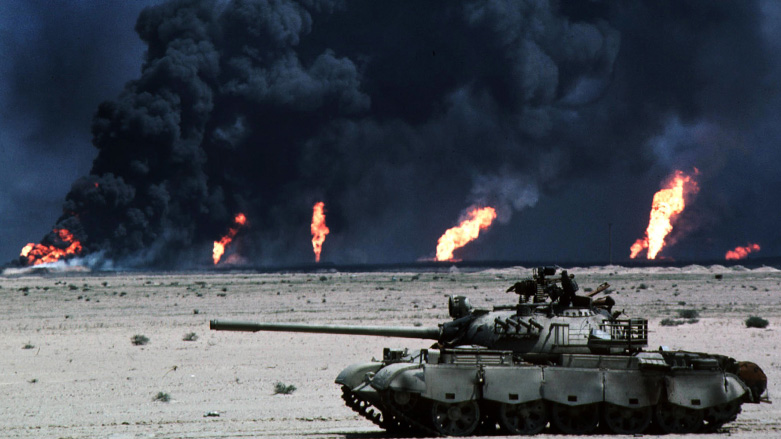Iraq to resume payment to Kuwait amid reconstruction struggles

ERBIL, Kurdistan Region (Kurdistan 24) – Iraq has agreed to resume payments from its oil revenues to Kuwait as part of compensation owed to the Gulf nation for damages sustained under Saddam Hussein’s invasion in the 1990s, according to the UN.
Baghdad still owes the Government of Kuwait $4.6 billion for the destruction of its oil fields and facilities during the Gulf War, and agreed to resume its payments in 2018.
The United Nations Compensation Commission (UNCC) had cleared the suspension of the payments in October 2014 because of the war against the Islamic State (IS) and financial crisis that hit the country.
Iraq will commit 0.5 percent of its oil proceeds in 2018 to the repayment and escalate annually until the end of 2021, the UNCC said.
“Based on oil price and export projections, this would result in payment in full of the outstanding claim award,” a statement issued in Geneva read.
The resumption of payments, however, comes at a time when Iraq is in critical need of rebuilding the country now that it has declared victory over IS.
Recent estimates by the UN suggest that repairing Mosul’s basic infrastructure alone will cost over one billion dollars and take years to complete.
Despite the World Bank recently approving $400 million in financial assistance to the Federal Government of Iraq for the restoration and reconstruction of public service infrastructure in liberated areas, the Kurdistan Regional Government (KRG) continues to struggle with the influx of peoples displaced by the war in Iraq and Syria.
The KRG has repeatedly criticized Baghdad for not providing sufficient support for the Region’s 1.5 million refugees and Internally Displaced Persons (IDPs) and for failing to provide its share of the federal budget since 2014.
In its November report, the KRG’s Joint Crisis Coordination Centre (JCC) stated the quick rise of the Kurdistan Region population has heavily strained the KRG as the government spends nearly two billion dollars on IDPs and refugees annually.
Political clashes between Erbil and Baghdad since the Kurdistan Region held its independence referendum have escalated to the point where the central government decided to reduce Kurdistan’s share of the federal budget from 17 percent to 12.6 percent in the 2018 budget bill.
Iraq’s national and foreign debts are likely to exceed $125 billion by 2018 despite growing oil production and revenues, according to the International Monetary Fund.
Editing by Karzan Sulaivany
